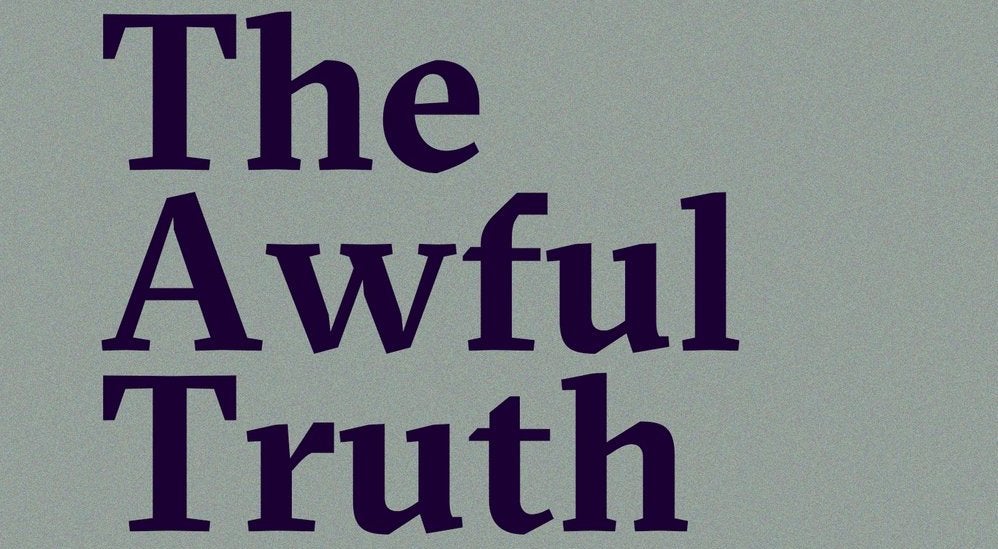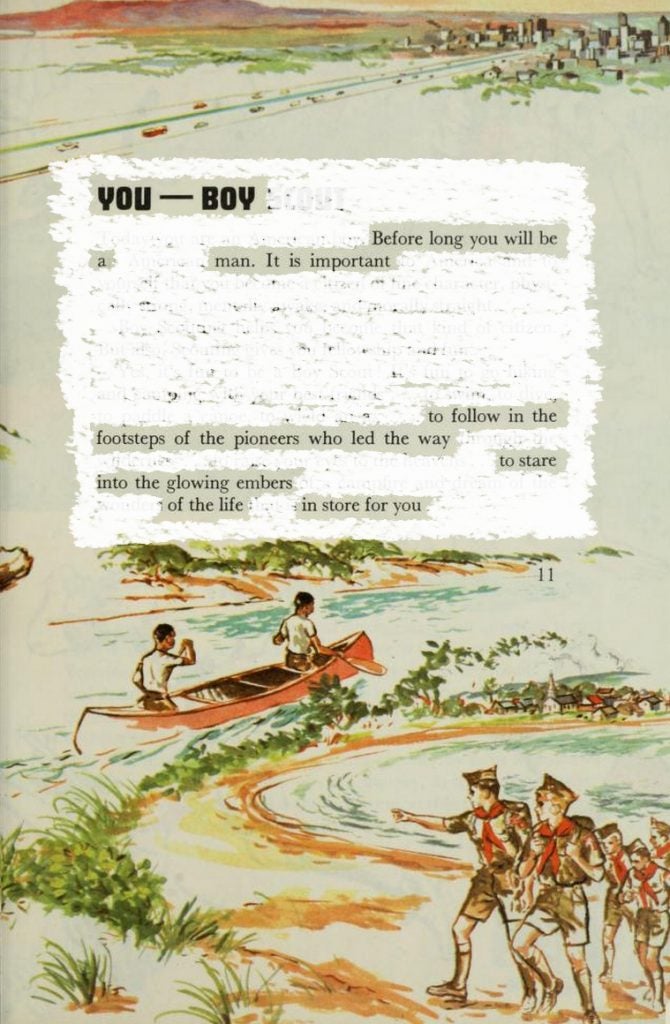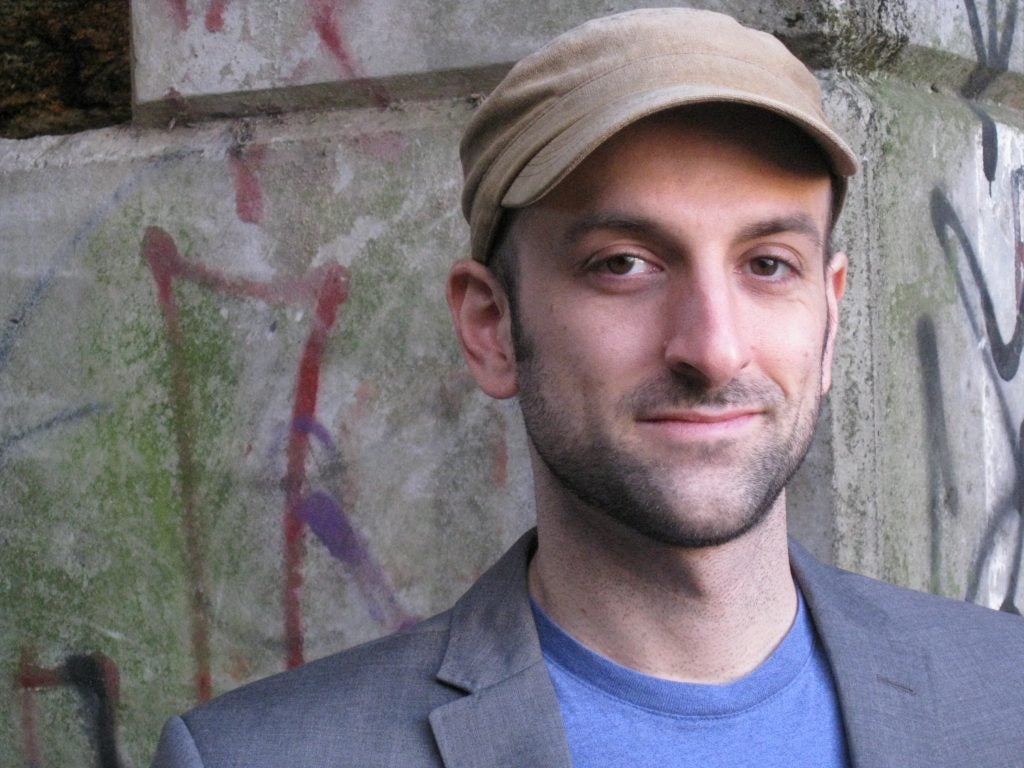“David Foster Wallace isn’t going to create any more things, so I have to take my energy in a new direction and create my own work. Like anyone who experiences a loss, I work with what’s left — one of Wallace’s texts. Working via erasure allows me to commune with the original text and author in a way that work that was simply inspired by or dedicated to wouldn’t. I repeatedly handle the physical book as I create a digital scan of the text. I then work with one page at a time, interacting with the words on the page and slowly erasing text until what remains is part me, part Wallace. The process is one of remembering and reflecting; the final product, a memento.”
“David Foster Wallace isn’t going to create any more things, so I have to take my energy in a new direction and create my own work. Like anyone who experiences a loss, I work with what’s left — one of Wallace’s texts. Working via erasure allows me to commune with the original text and author in a way that work that was simply inspired by or dedicated to wouldn’t. I repeatedly handle the physical book as I create a digital scan of the text. I then work with one page at a time, interacting with the words on the page and slowly erasing text until what remains is part me, part Wallace. The process is one of remembering and reflecting; the final product, a memento.”







